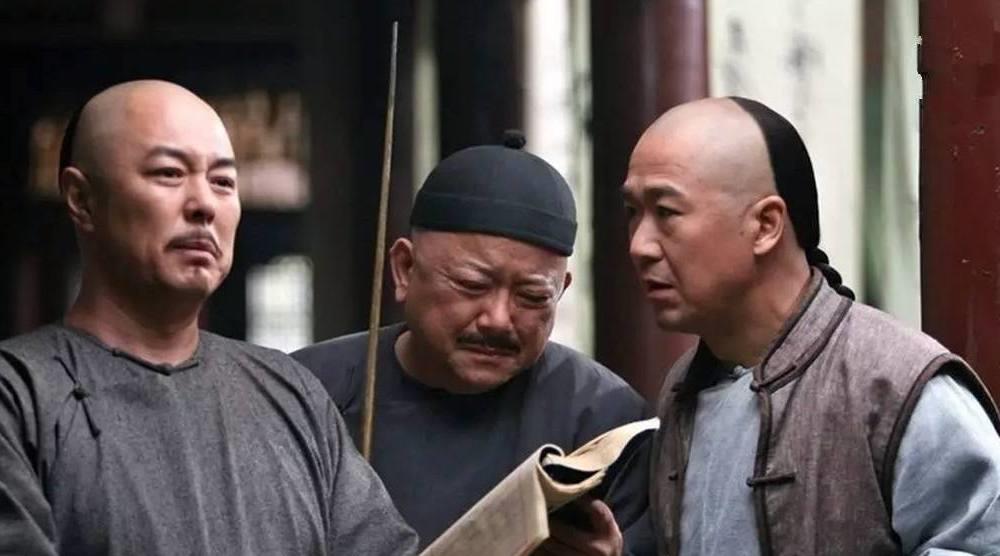Text/Gibb
It is said that in the late Qing Dynasty, there was a legend in the folklore that there were ten sacred beasts born in Xishan, Beijing, who cultivated psychicity for thousands of years, cultivated human form, and became great "big figures" in the late Qing Dynasty, collectively known as "Xishan Ten Warriors".
And today Xiaobian will briefly talk to you about the wolf of the "Xishan Ten Warriors", and why this "wolf" will be a symbol of the qing dynasty's corrupt officials and yan.
When it comes to Hezhen, everyone can be said to be familiar with him, and his impression is also very deep, and there are many TV series and movies about him.

Born in the Qianlong era, he was raided not long after Qianlong's death, and he was also killed by Jiaqingye. Although He yan was a corrupt official, his talent was still worth learning from future generations, and he was also a leader among the officials of the same dynasty.
But why is it called "wolf" together? Washu, the Cobalt Clan, can mean "wolf", symbolizing ferocity and greed. He Yan was a corrupt official in the Qing Dynasty, and the wealth he accumulated in his life was worth about 1 billion taels.
The value of antiques, calligraphy and paintings, treasures and so on far exceeded the sum of the fifteen years of tax revenue at that time, which shows the strength of its ability to accumulate wealth. It is also this greed that coincides with the characteristics of the wolf, so he is called a wolf.
Next, I will briefly talk about his achievements in politics, and in 1769, he officially entered the career, he had taken the exam in his ugly year (1979), but unfortunately he was not on the list. Later, he inherited the title of Third Class Light Vehicle Lieutenant in the name of the Clerk.
In 1772, he was awarded the title of third class bodyguard, and later he was favored by the sticker and became a bodyguard. In 1773, He Yan finally showed his talents in front of the Qianlong Emperor and became a bodyguard of the honor guard around Qianlong, when he was only 23 years old.
In the same year, He Yan was appointed as the minister of treasury management, specifically responsible for managing Buku, he also learned how to manage money from his work, and learned to apply it, so that the stock of cloth was greatly improved, which was deeply appreciated by the Qianlong Emperor. In the following two years, He Yan was promoted from a small bodyguard to a deputy governor of Manchuria.
Later, in 1776, he was appointed as the right attendant of Tobe, and then in the same year he was appointed to important positions such as minister of military aircraft, and in the following three years, he held other important positions.
Later, because of the trial of Li Shiyao's corruption case, he made great merits, which was deeply liked by the Qianlong Emperor, and appointed him as the imperial chancellor, and supplemented the blue flag of Manchuria.
This can be said to make Hezhen feel the taste of power, so that his wolf ambition slowly expanded. At the beginning of the period, He Yan was still "still "stained with mud" and resolutely did not embezzle, but he still could not stand the passage of time, he began to embezzle, collude with his henchmen, and later formed a big force that could not be underestimated.
Because he held an important position at a young age, some officials were very dissatisfied with him, believing that he was holding an important position by currying favor with the Qianlong Emperor, and even some civilian officials took turns to petition the Qianlong Emperor in the AnMing case to impeach Hezhen.
Later, in 1780, He yan began to take revenge on civilian officials, and he took advantage of his position to take the civilian officials who opposed him in the Anming case as evidence of their rebellion in the name of "privately hiding reverse books" and "forbidding rebellion ineffectively", which was also known as a "word prison".
After cleaning up the civil officials, He Yan began to purge the military attaches, and in 1778, He Yan attacked Fu An Kang and Attis respectively, and through these two events, nearly half of the military attaches were also framed, and since then, He Yan has begun to monopolize power, which can be described as "under one person, above ten thousand people".
Even if it is smooth sailing, there are times when he is decaying, and Hezhen cannot escape such an ending. In the twilight years of the Qianlong Emperor, the good days of Hezhen came to an end.
In the first month of 1799, the Qianlong Emperor died, and the Jiaqing Emperor ordered He yan to deal with the funeral, and after handling the funeral, the Jiaqing Emperor listed the twenty major sins of Hezhen and ordered him to raid his home and give him to commit suicide in his home, when he was only 49 years old.
A generation of "greedy wolves", Hezhen, ended up with such a tragic end because of his greed, and his life is worthy of our study and my reflection.
References for this article: "General History of China", "Qianlong Biography", "He yan zhuan", "Ji Lianhai said he yan", "he yan - the emperor's confidant", "CNKI related literature - historical He yan and other related literature", "Baidu encyclopedia related terms - Qianlong Emperor, He Yan, etc."